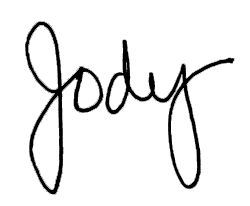I would be wary of too highly praising the low-key and charming Cold Weather were it not for one thing: I went into the movie with what might’ve been, in another film, an unfairly high level of anticipation. A critic whose opinion I generally hold in high regard, L.A. Weekly’s Karina Longworth, called it the first unqualified hit of SXSW.
So I had expectations. And I’m glad I had time to sit with my thoughts about the film, to lets its damp windows and dingy motel drift through my mind as I walked around Austin, or sat on a plane on the way home, or stared out the window, dotted with rain just like the one in the film’s opening scene. Aaron Katz’s third film is confident — so much so that its ending feels like a shock. At first.
Cold Weather is a perfect depiction of a certain kind of aimlessness, the kind that comes not from lack of talent, or lack of skill, but lack of impetus. Its main character, Doug (Cris Lankenau), carries his lack of direction in his posture, slump-shouldered and stiff-armed. He’s ditched a degree in forensic science to move in with his sister, Gail (Trieste Kelly Dunn), in a Portland apartment full of unopened boxes and half-built Ikea coffee tables. She works in an office; he gets a job in an ice factory, where he makes friends with Carlos (Raúl Castillo), who doesn’t believe that Doug loves Sherlock Holmes novels. Doug, in turn, doesn’t really believe Carlos is a DJ. Everyone’s expectations of everyone else are as fogged as rain-streaked glass.
When Doug’s ex, Rachel (Robyn Rikoon), turns up, the film shifts, but it’s not a love triangle. It becomes, swiftly and delightfully, a mystery like the ones Doug so loves to read. And he becomes a detective, poring over books on cryptography and lifting penciled codes from a notepad. The library is his biggest toolbox, Gail his best assistant; she’s as reluctantly game for Doug’s detective efforts as she is, earlier in the film, to play hooky for a day and go to the overcast Oregon coast (I’m not sure it’s ever actually sunny in this film. Not raining, sure. But sunny? I can’t recall a bright scene). Their efforts are goofy, sweet, absurd and effective, and have the added effect of making TV detectives, with their fitted suits and terse dialogue, seem patently ridiculous.
Cold Weather is Katz’s third feature to premiere at SXSW. His earlier films — which I’ve yet to see — stir people to reference mumblecore, and I can see the connection in the natural, meandering conversations of his characters, in their ordinary jobs and perfectly individual, perfectly ordinary apartments, jackets, heavy wool sweaters. But Cold Weather is more formally lovely than any mumblecore film I’ve yet seen (and I do have a modest taste for the genre, if you can really call it that). Its cool Oregon light is perfect; its framing is precise; its dialogue is crisply convincing, dryly funny (Doug, fixated on his quest, decides he must have a pipe; his shopping experience does not go as expected) and perfectly balanced, revealing without ever leaving the characters to explain too much. So much is caught in the physical, in the stolen sip of coffee Longworth mentions in her review, or in the body language of Gail and Doug as they hunch over a bar or lean over the ledge of their apartment building’s roof, dropping grapes and watching them splatter. Theirs is a slightly contentious, ever impatient sibling revelry, smartly observed and elegantly depicted in Katz’s compact, playfully moody film. I hope you get to see it.
A Note From the Publisher

Dear Readers,
The last two years have been some of the hardest in Eugene Weekly’s 43 years. There were moments when keeping the paper alive felt uncertain. And yet, here we are — still publishing, still investigating, still showing up every week.
That’s because of you!
Not just because of financial support (though that matters enormously), but because of the emails, notes, conversations, encouragement and ideas you shared along the way. You reminded us why this paper exists and who it’s for.
Listening to readers has always been at the heart of Eugene Weekly. This year, that meant launching our popular weekly Activist Alert column, after many of you told us there was no single, reliable place to find information about rallies, meetings and ways to get involved. You asked. We responded.
We’ve also continued to deepen the coverage that sets Eugene Weekly apart, including our in-depth reporting on local real estate development through Bricks & Mortar — digging into what’s being built, who’s behind it and how those decisions shape our community.
And, of course, we’ve continued to bring you the stories and features many of you depend on: investigations and local government reporting, arts and culture coverage, sudoku and crossword puzzles, Savage Love, and our extensive community events calendar. We feature award-winning stories by University of Oregon student reporters getting real world journalism experience. All free. In print and online.
None of this happens by accident. It happens because readers step up and say: this matters.
As we head into a new year, please consider supporting Eugene Weekly if you’re able. Every dollar helps keep us digging, questioning, celebrating — and yes, occasionally annoying exactly the right people. We consider that a public service.
Thank you for standing with us!

Publisher
Eugene Weekly
P.S. If you’d like to talk about supporting EW, I’d love to hear from you!
jody@eugeneweekly.com
(541) 484-0519